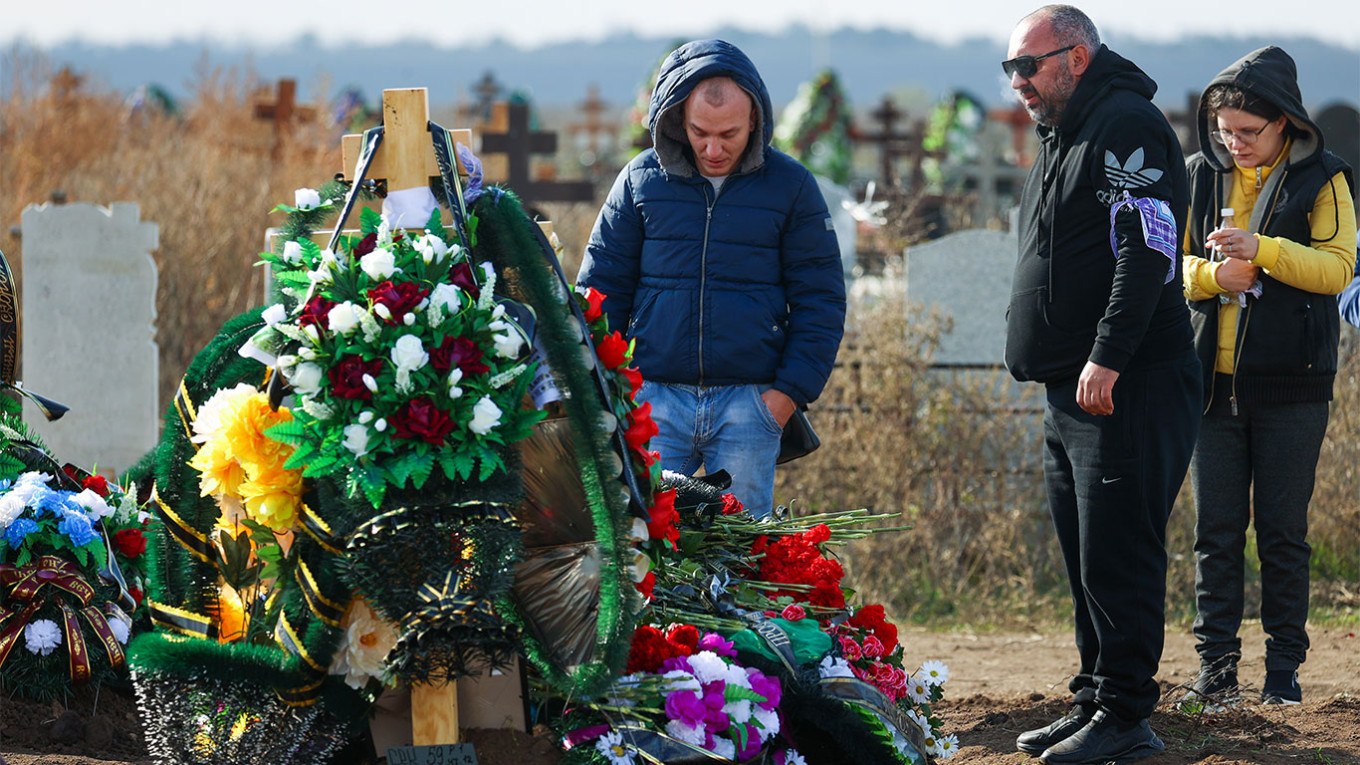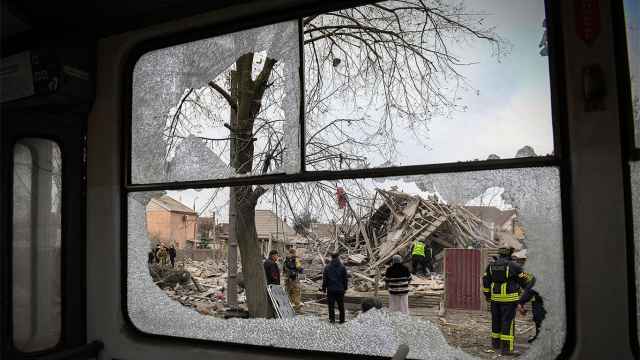Russia’s funeral industry is experiencing unprecedented growth due to military deaths from the nearly year-long invasion of Ukraine as well as high Covid-19 fatalities, the investigative news website The Insider reported Thursday.
The outlet said it spoke with funeral and crematorium workers who reported high demand from both clients and those seeking training to become service providers.
“The workload is quite heavy,” said Boris Yakushin, a crematorium owner in Russia’s third-largest city Novosibirsk.
Russia’s Defense Ministry placed its wartime death toll at 6,000 in its most recent update in September, while an independent media analysis of open-source data identified more than double that figure this month.
“The boom began during the pandemic when demand for cremation increased,” said Dmitry Yevsikov, a mortician and crematorium equipment specialist in annexed Crimea.
“In addition, land in cemeteries is physically running out,” Yevslikov told The Insider.
Yakushin identified the southern city of Rostov-on-Don near the Ukrainian border as a transshipment hub for bodies returning from Russia’s “special military operation.” He said the city is so overwhelmed that it is building a new crematorium, which he predicted would be kept busy for the next two to three years.
“Crematoriums are growing exponentially in Russia,” Yevsikov told The Insider, which estimates that the 33 crematoriums currently operating in Russia are unable to meet surging demand.
One final destination for the dead soldiers was identified as the village of Bakinskaya located 250 kilometers south of Rostov-on-Don.
The New York Times reported this week that the Bakinskaya cemetery — used by the Wagner mercenary group, whose fighters are taking part in the invasion of Ukraine — has expanded sevenfold in the past two months.
Wagner founder Yevgeny Prigozhin confirmed last month that fighters were buried in Bakinskaya after space ran out at another Wagner cemetery and chapel 18 kilometers west.
A Message from The Moscow Times:
Dear readers,
We are facing unprecedented challenges. Russia's Prosecutor General's Office has designated The Moscow Times as an "undesirable" organization, criminalizing our work and putting our staff at risk of prosecution. This follows our earlier unjust labeling as a "foreign agent."
These actions are direct attempts to silence independent journalism in Russia. The authorities claim our work "discredits the decisions of the Russian leadership." We see things differently: we strive to provide accurate, unbiased reporting on Russia.
We, the journalists of The Moscow Times, refuse to be silenced. But to continue our work, we need your help.
Your support, no matter how small, makes a world of difference. If you can, please support us monthly starting from just $2. It's quick to set up, and every contribution makes a significant impact.
By supporting The Moscow Times, you're defending open, independent journalism in the face of repression. Thank you for standing with us.
Remind me later.






